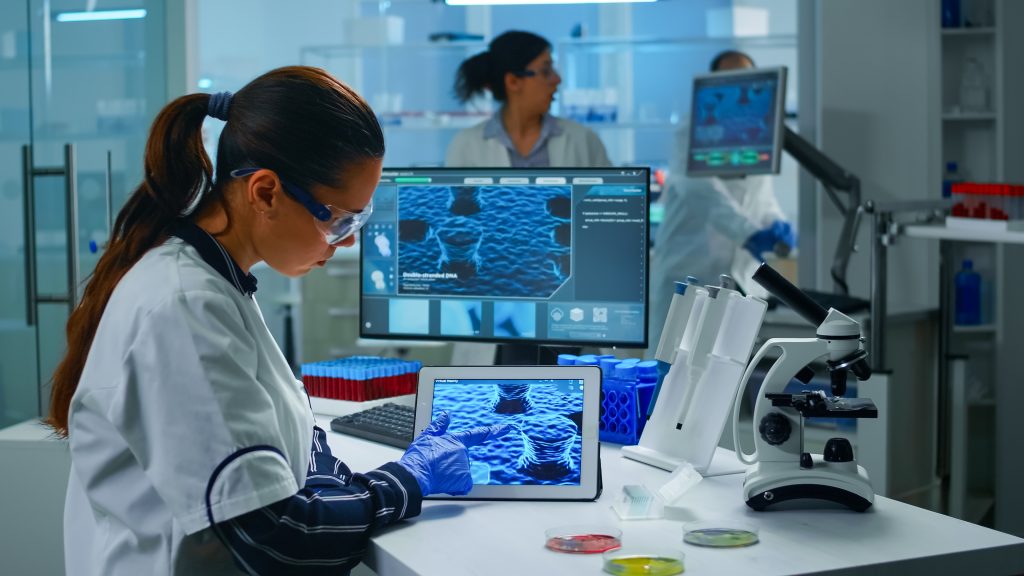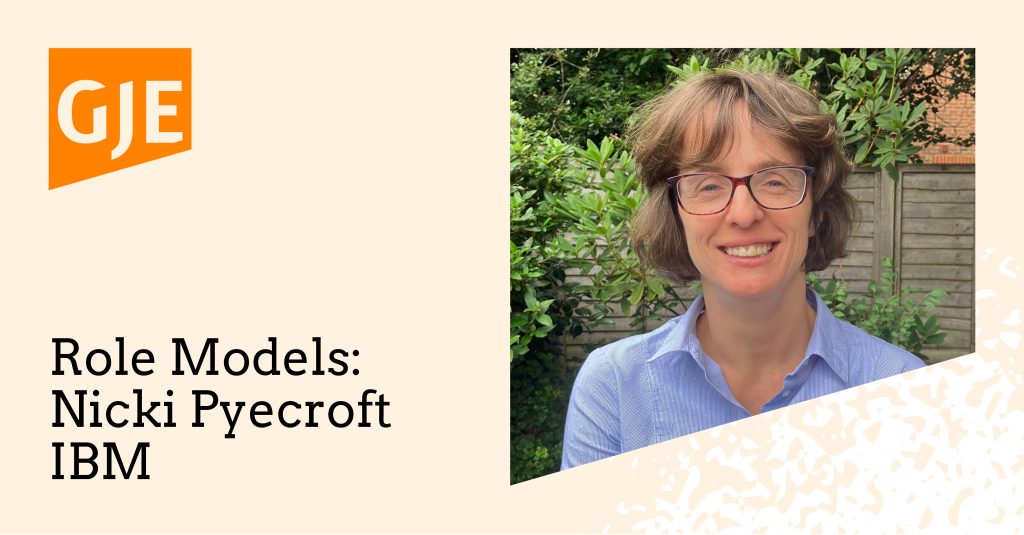
Continuing on the GJE Role Model Series, which aims to celebrate the achievements of people from under-represented groups within STEM, highlight the progress that has been made to make organisations more inclusive, and discuss what still remains to be done, we have interviewed the technology transfer expert Dr Amritha Nair. Amritha is an Industry Partnerships and Commercialisation Senior Executive for the Faculty of Medicine at Imperial College London.
Please can you tell us a bit about your background and career journey?
I am a cancer biologist by training with a PhD in Mol and Human Genetics from Baylor College of Medicine, Houston TX. My research was focussed on looking at new molecular targets in Breast cancer. During my PhD I became very interested in “translatable science” and the journey of commercialising basic science discoveries into the clinic for real-world impact. So, my next role was at a private equity backed venture builder- where I got experience in drug discovery and development by building life science ventures from in-licensing therapeutic assets from U.S Universities. Subsequently I worked in a Product Development and Innovation Strategy company, specialized in helping clients with their technology commercialization needs by providing technical/business feasibility assessment services, R&D support and proposal writing support to access to both public & private funding.
After moving to London, I ended up choosing to work on the other side of the spectrum at the interface of academia and industry i.e. technology transfer in academia. Here I am in a senior role in a high functioning, high visibility team who is responsible for Industry partnerships and Commercialisation for the Faculty of Medicine at Imperial College London. I am involved in every aspect of the “Technology Transfer” lifecycle from innovation management, external corporate engagement, protecting and licensing University-born inventions to companies, new spinout creation and strengthening the innovation ecosystem by serving to connect entrepreneurial academics with the network and resources to take their inventions out of the lab and growing them into products or services for the public.
What motivated you pursue a career in innovation consulting, then Industry Partnerships and Commercialisation at Imperial, following your PhD research?
In academia, I saw a lot of discoveries that had potential to be implemented in the real-world to improve patient outcomes. Without the backing and engagement from players in the innovation ecosystem- inventors, investors, healthcare systems, regulatory bodies and industry these academic discoveries and their potential can remain unrealised. My roles in venture building and innovation consulting were inspired by recognising the need to connect high impact projects to the machinery that could harness and capitalize their commercialisation potential via technology development and de-risking of projects. From the vantage point in academia, my current role is that of a service provider to the Faculty of Medicine with the goal to enable academics engage with industry to translate their discoveries and inventions into innovative products. The cross pollination of ideas and investment between industry and academia can foster the innovation ecosystem thereby spurring economic growth.
What are your top tips for researchers in universities, or early stage companies wishing to commercialise their innovations?
My top tip is to engage early with all of the stakeholders that can help develop your technology for commercialisation. Things to consider:
A) Technology development – what is my current minimal viable product and do I have a roadmap on how to develop the technology in terms of funding and partners to engage with?
B) Intellectual property- do I have patents and other IPR that I can rely on for a competitive advantage? What are the innovations/technologies in my pipeline and do I have a patent strategy in place to capitalize on my IP position?
C) Business use case- Often the most overlooked but arguably the most important aspect of commercialisation is asking is there a clear unmet need and how is your solution differentiated from competitors?
There are many other considerations down the line in terms of market access, regulatory considerations, reimbursement etc. but the above points cover the most basic questions from which a clear unique selling point (USP) can be defined for your technology.
What advice would you give to women, or those from minority groups, considering a career in technology transfer?
I am proud to be a member of a diverse team, with many different backgrounds (race, ethnicity, gender, nationality, and academic background). The inclusion of a people from different backgrounds means we are less likely to have blind spots that could potentially disadvantage minority groups from upward mobility within the organisation. My advice to all considering a career in technology transfer and beyond is to be curious, proactive and confident to air their views/perspective in the office. Teams often benefit from broader perspectives which in turn boost team creativity and productivity.
What is the most rewarding thing about your career?
The most rewarding thing about my career is getting the opportunity to work with passionate, smart and motivated people. A role in technology transfer at the crux of it is about trying to unlock unrealised potential from promising discoveries/inventions. We are the connectors trying to push high impact projects towards their realisation- connecting them to funding, collaborative partnerships and continued development towards commercialisation. It is about recognising the gaps (technology or team) and plugging these programs with the right support to get them to the next value inflection point. In order to do this you need to understand the drivers, motivations and incentives for all the different stakeholders and try to align priorities to move projects forward.
What advice would you give you your younger self at the start of your career?
Be curious, be fearless and always strive to learn. I have tried to embody that in every turn of my career and have never shied away from taking the plunge in trying new things.
At GJE, our patent and trademark attorneys are highly experienced in obtaining effective patent protection for a diverse range of clients, from university spin outs, to international corporations. To discuss your intellectual property strategy, please do get in touch.
Our firm also celebrates gender diversity and equal opportunity in the IP profession. GJE is a proud member of IPInclusive and supporter of Women in IP.


